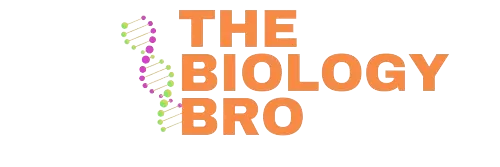
Website Radboud University Nijmegen
Last date to apply: 31.08.2025
Number of Positions: 01
Do you want to contribute to the next level of molecular computing? Are you excited about the application of AI tools to train molecular systems how to process information? Then join our team as a PhD candidate!
Scientists have speculated about the inherent potential of molecular systems for information processing since the dawn of computer science. However, the digital computing paradigm is inherently ill-suited for molecular system. Recently, we reported a major breakthrough in using chemical reaction networks for so-called in chemico reservoir computing (Nature, 2024, 631, 549–555). This work demonstrated that self-organising reaction networks and the emergent complexity in such systems form powerful reservoir computers capable of non-linear classification, times-series prediction and forecasting, on a par or even outcompeting in silico algorithms.
The ambition of this project is to expand in chemico reservoir computing to other reaction networks, especially enzymatic reaction networks. By incorporating light-sensitive groups and exploiting the inherent temperature and pH sensitivity of enzymes, we will construct chemical computers that sense their physico-chemical environment and process this information into desired outputs. Ultimately, we wish to use these chemical reservoirs as a molecular ‘brain’ that can interface with both electronic and biological systems.
In this project, you will combine a deep knowledge of chemical reaction networks with robotic systems and analytical science. You will also learn how to programme robotic systems and how to implement aspects of deep learning and neural networks for reservoir computing. You will be part of the Big Chemistry consortium and will also be involved in training and teaching BSc and MSc students. We are looking for two PhD candidates for this opening.
Would you like to learn more about what it’s like to pursue a PhD at Radboud University? Visit the page about working as a PhD candidate.
Profile
- You have a Master’s degree in chemistry, biochemistry, molecular biology, or a related field.
- You are motivated by deep scientific curiosity, have excellent experimental and quantitative skills and possess a drive to learn and develop new methods and concepts.
- You have excellent verbal and written communication skills in English.
- You have a strong affinity with teamwork and thrive in an international, ambitious, multidisciplinary and highly collaborative environment.
We offer
- We will give you a temporary employment contract (1.0 FTE) of 1.5 years, after which your performance will be evaluated. If the evaluation is positive, your contract will be extended by 2.5 years (4-year contract).
- You will receive a starting salary of €2,901 gross per month based on a 38-hour working week, which will increase to €3,707 in the fourth year (salary scale P).
- You will receive an 8% holiday allowance and an 8,3% end-of-year bonus.
- We offer Dual Career Coaching. The Dual Career Coaching assists your partner via support, tools, and resources to improve their chances of independently finding employment in the Netherlands.
- You will receive extra days off. With full-time employment, you can choose between 30 or 41 days of annual leave instead of the statutory 20.
Additional employment conditions
Work and science require good employment practices. Radboud University’s primary and secondary employment conditions reflect this. You can make arrangements for the best possible work-life balance with flexible working hours, various leave arrangements and working from home. You are also able to compose part of your employment conditions yourself. For example, exchange income for extra leave days and receive a reimbursement for your sports membership. In addition, you receive a 34% discount on the sports and cultural activities at Radboud University as an employee. And, of course, we offer a good pension plan. We also give you plenty of room and responsibility to develop your talents and realise your ambitions. Therefore, we provide various training and development schemes.
We are
The department of Physical Organic Chemistry is an international, diverse and multidisciplinary team of chemists, physicists, biologists, engineers and AI/ML scientists at the Institute for Molecules and Materials, Radboud University (Nijmegen, Netherlands). The Big Chemistry consortium is funded by the Dutch National Growth Fund and combines AI and chemistry with the aim to accelerate research in complex molecular systems.
Faculty of Science
The Faculty of Science (FNWI), part of Radboud University, engages in groundbreaking research and excellent education. In doing so, we push the boundaries of scientific knowledge and pass that knowledge on to the next generation.
We seek solutions to major societal challenges, such as cybercrime and climate change and work on major scientific challenges, such as those in the quantum world. At the same time, we prepare our students for careers both within and outside the scientific field.
Currently, more than 1,300 colleagues contribute to research and education, some as researchers and lecturers, others as technical and administrative support officers. The faculty has a strong international character with staff from more than 70 countries. Together, we work in an informal, accessible and welcoming environment, with attention and space for personal and professional development for all.
Radboud University
At Radboud University, we aim to make an impact through our work. We achieve this by conducting groundbreaking research, providing high-quality education, offering excellent support, and fostering collaborations within and outside the university. In doing so, we contribute indispensably to a healthy, free world with equal opportunities for all. To accomplish this, we need even more colleagues who, based on their expertise, are willing to search for answers. We advocate for an inclusive community and welcome employees with diverse backgrounds, cultures, and perspectives. Will you also contribute to making the world a little better? You have a part to play.
If you want to learn more about working at Radboud University, follow our Instagram account and read stories from our colleagues.
Practical information and applying
You can apply only via the button below. Address your letter of application to Wilhelm Huck. In the application form, you will find which documents you need to include with your application.
Applications will be reviewed, and interviews scheduled during the recruitment period. Therefore, you will receive feedback and information about a possible follow-up process shortly. If a suitable candidate is found before the closing date, the vacancy will be closed, and further applications will no longer be possible. You will preferably start your employment as soon as possible.
We can imagine you’re curious about our application procedure. It describes what you can expect during the application procedure and how we handle your personal data and internal and external candidates.
